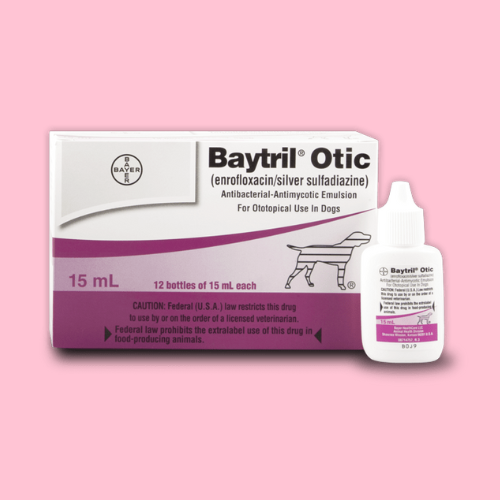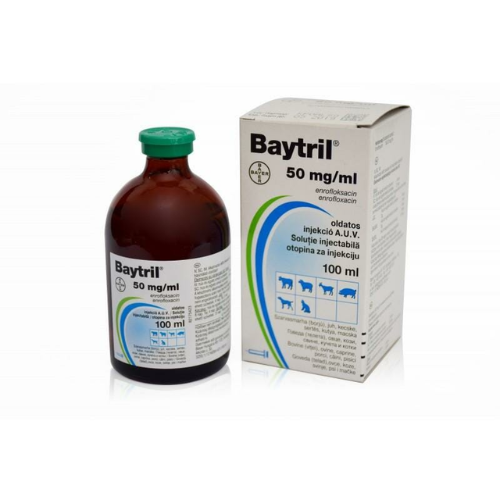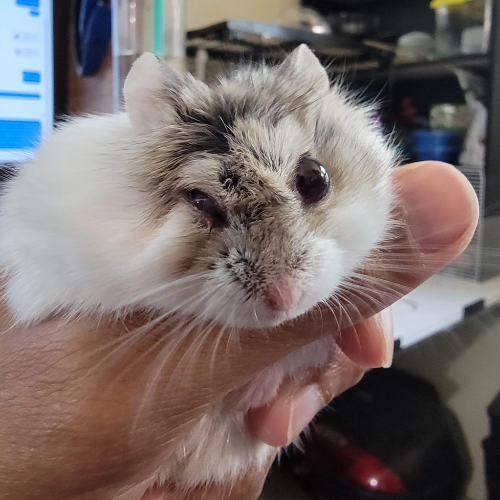If you are looking for information on Baytril for guinea pigs, your little friend might be diagnosed with a bacterial infection. Your vet might prescribe a course of enrofloxacin or Baytril.

You might be concerned a bit about what this antibiotic is and what it will do to your little friend. We will sort out such questions in this post and see how you can safely give this antibiotic to our little pet.
So, let’s get on with it, shall we?
What Is Baytril?
Baytril is one of many over-the-counter antibiotics for guinea pigs, which Bayer Pharmaceutical has developed. It is an enrofloxacin antibiotic. This antibiotic was especially for vet use back in the 1980s.
Later, it developed into a solution that you can inject directly into the bloodstream (intravenously), into the muscle (intramuscularly), or orally.
This antibiotic was commercially available in 1988, and it still is a commonly prescribed option. It is one of the approved antibiotics for guinea pigs. Moreover, it is a suitable option for your pet cats, dogs, rabbits, certain bird species, certain rodent species, and some reptiles.
Baytril Antibiotic for Guinea Pigs
So, how effective is Baytril for guinea pigs? Baytril Antibiotics for guinea pigs are typically for animals dealing with problems in their urinary tract, skin infection, or upper respiratory infection.

These problems are usually bacterial, where Baytril antibiotics come in. Enrofloxacin antibiotics are useful for guinea pigs in certain ways.
Bladder Stones or Urinary Tract
Guinea pigs do have excessive calcium in their urine. It frequently occurs because they ingest calcium-rich vegetables in their diet. These include kale, watercress, dandelions, spinach, and parsley.
This excess calcium goes through the urine and meets with other substances. These include salts and other excess minerals. Then, they start precipitating into solid stones, which are very similar to kidney stones in humans.
Urinary stones that develop in the urethra or bladder stones that develop in the bladder are pretty painful for these little animals. And these stones don’t pass out of the urinary tract naturally. They have to be removed through surgery.
Your vet will recommend different dietary changes before any surgery to prevent any recurrence in most cases. It also allows your little friend to pass urine without any pain.
Baytril prevents bacterial buildup in those healing areas by creating a sterile environment. Therefore, it helps prevent secondary infection.
Respiratory Infection
Pneumonia is pretty common in guineas. It can be life-threatening if any respiratory distress symptoms are not noticed early.
These little animals harbor numerous types of bacteria, including those that cause pneumonia – streptococcus and bordetella. These bacteria can cause strep throat or even deadly infections in your hamster’s brain or other vital organs.
These bacteria won’t cause any damage to your guinea pig unless there is a case of a recent illness or an underdeveloped immune system at a young age.
When the conditions are appropriate within your pet’s body, these bacteria start to multiply and create a respiratory infection. Your guinea pig might stop eating anything. You will also notice nasal or eye discharge. You might notice visible or audible breathing and sneezing.
Baytril can help treat these infections before they worsen as bacteria are susceptible to enrofloxacin.
What Kind of Baytril is Suitable for Guinea Pigs?
Baytril is available as a shot, suspension liquid via syringe, or oral tablet. But the recommended method to give Baytril to guinea pigs is intravenous. Your vet will provide you with different instructions for the subsequent doses.
But the best practice is to go for a treatment administered by the vet. If your guinea has developed a severe infection that warrants a hospital stay, your vet can give the treatment that your pet needs along with the fluids.
Guinea Pig Baytril Dose
We will provide you with the information on Baytril dodge. However, we strongly recommend that you consult with your vet and administer Baytril as per the prescription.
According to the Baytril product companion, the recommended dosage of this antibiotic is 10 mg/kg of body weight. You need to give this dose once a day for 5 to 10 days without a gap.
If you are not sure about your guinea’s weight, your vet can help you out here and administer the dosage too. But you need to keep one thing in mind, even if your guinea looks better, you have to complete the course as per your vet’s instructions.
Baytril Side Effects
Baytril is generally safe and doesn’t produce side effects when you give it at an appropriate dosage. However, some milder side effects may include loss of appetite or dehydration.
You have to be sure to provide your guinea pig with a lot of water during the Baytril course. And if she doesn’t start eating, discuss the matter with your vet, who will administer an appetite stimulant or a belly-calming medication.
But your vet might not administer or prescribe this appetite stimulant if your guinea pig is lactating or pregnant. But it might depend upon the situation where the benefits outweigh the risks.
FAQs
Where Can I Buy Baytril for Guinea Pigs?
You can find Baytril for guinea pigs online in an injectable solution form. But you will still need a prescription from your vet. As your vet must prescribe Baytril, you might get it conveniently from your vet’s clinic.
How Should I Administer Baytril to My Guinea Pig?
It is highly recommended that you seek assistance from your vet to administer Baytril to your guinea pig. But if you have enough experience, it is better to inject intravenously (directly into the bloodstream) for the best outcomes.
When Should I Not Use Baytril?
Baytril for guinea pigs should not be administered concomitantly with other antibiotics. These include tetracyclines, phenols, or macrolides. Moreover, you should not administer Baytril concurrently with theophylline.
Final Word
Baytril for guinea pigs is highly recommended. It can help deal with any bacterial infection that might develop in your guinea pigs over time. This antibiotic must be injected intravenously, and you must strictly follow the instructions provided to you by your vet.

Doctor of Veterinary Medicine (D.V.M.) at Nation Taiwan University,Master of Science (M.S.) in Biomedical Engineering at National Taiwan University of Science and Technology




